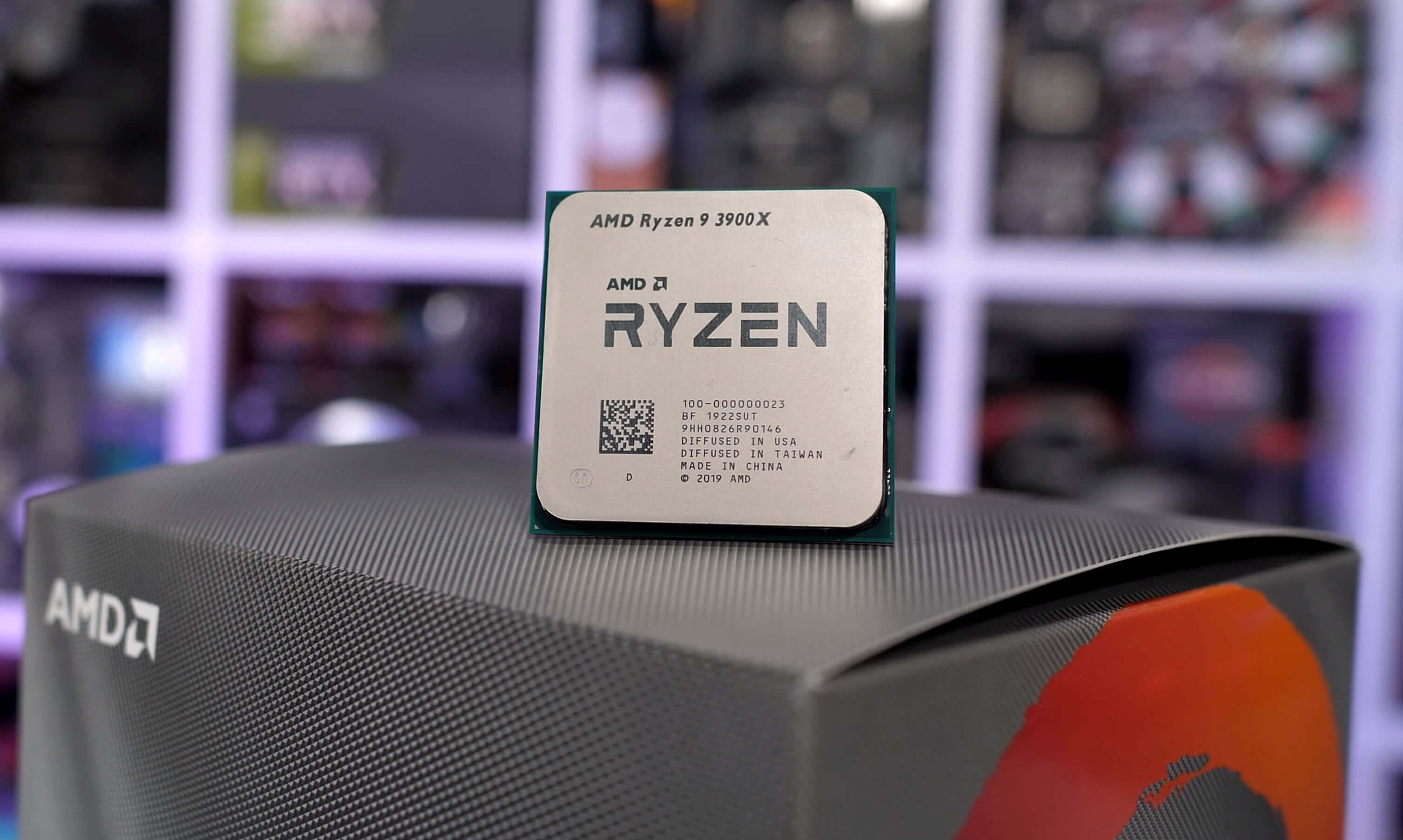When we compared AMD's latest flagship Ryzen 9 3900X head to head with the Core i9-9900K in 36 games we found that on average the 12-core AMD processor was about 6% slower in gaming tasks. There were a few select titles where the Ryzen processor came out on top, but for the most part it was only a little slower.
Overall it's still a good showing for 3rd-gen Ryzen as the deficit when gaming is negligible for the most part, while it pummeled the 9900K in all productivity tests.
After we published that feature, we've been requested by readers to retest the 3900X with SMT disabled, essentially turning the 12-core, 24-thread CPU into a 12-core, 12-thread CPU. Many say this can significantly improve gaming performance... but why?

We were instantly skeptical as we spent quite a bit of time testing first generation Ryzen with and without SMT and even back in 2017 the gains were not great and often you'd see a performance regression – in other words SMT was doing what it was supposed to with no major downside.
Since Ryzen's introduction, Windows and gaming titles have evolved to support the multi-core processors better, and our recent testing has found SMT to be effective when it comes to gaming performance, on both Intel and AMD platforms. With that, we haven't tested the Zen 2 chips with SMT disabled so we're going to go for it, even if we'm expecting to find the same as before.
For this test the Ryzen 9 3900X has been configured in its out of the box trim, using the Wraith Prism RGB box cooler. Both the SMT on and off configurations are otherwise identical.
Benchmarks
First up we have Prey and here we see an impressive 9% improvement for the average frame rate with SMT disabled. Even more impressive was the 13% boost we saw for the 1% low result. The difference against the 9900K was diminished considerably even though the Core i9 was still the faster chip.
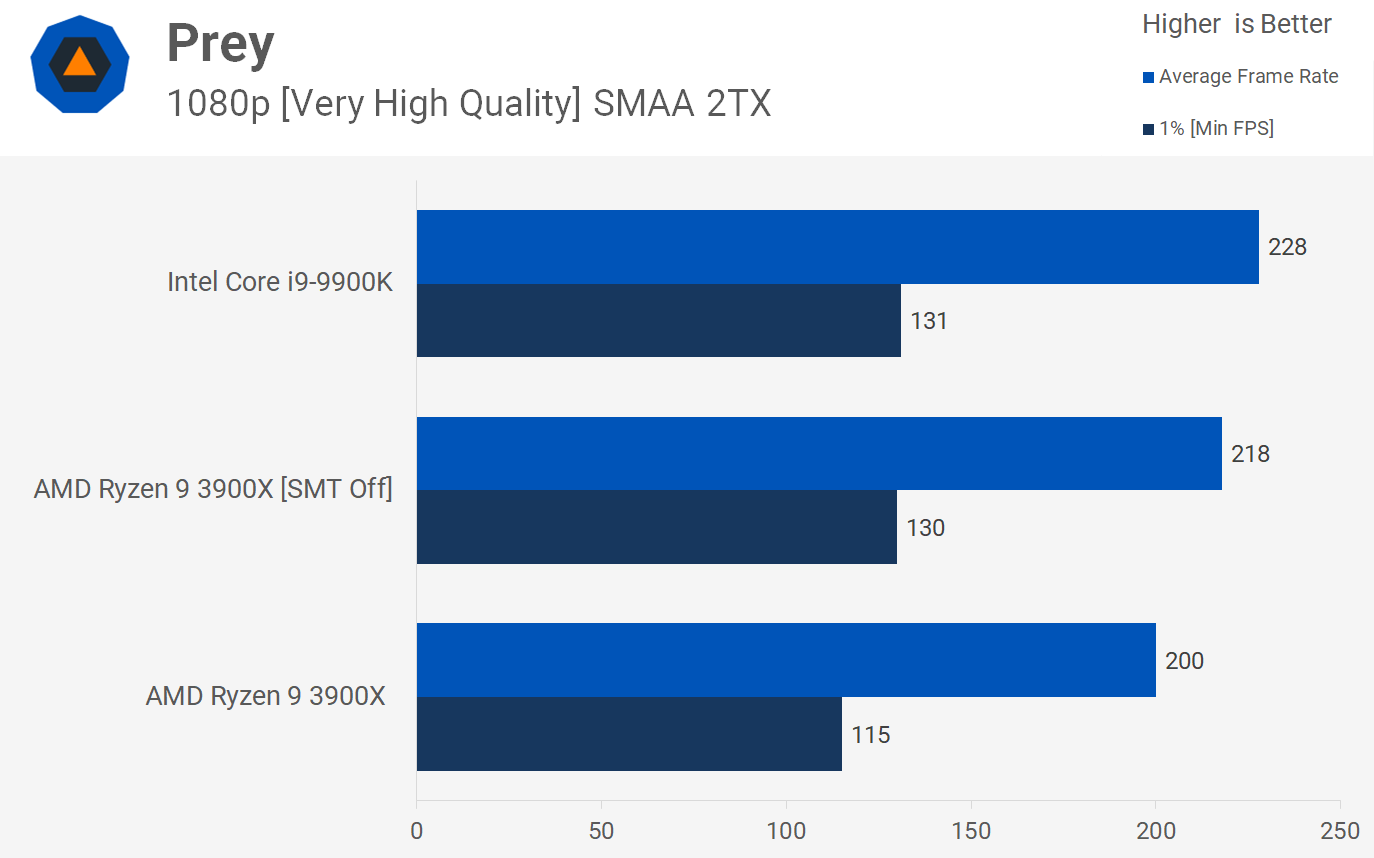
Just Cause 4 also sees a very noteworthy 8-10% performance uplift with SMT disabled and that sees the 3900X close in on the 9900K again.

Testing with StarCraft II shows no improvement in performance with SMT disabled when looking at the average frame rate, though we do see a bump in performance for the 1% low result.
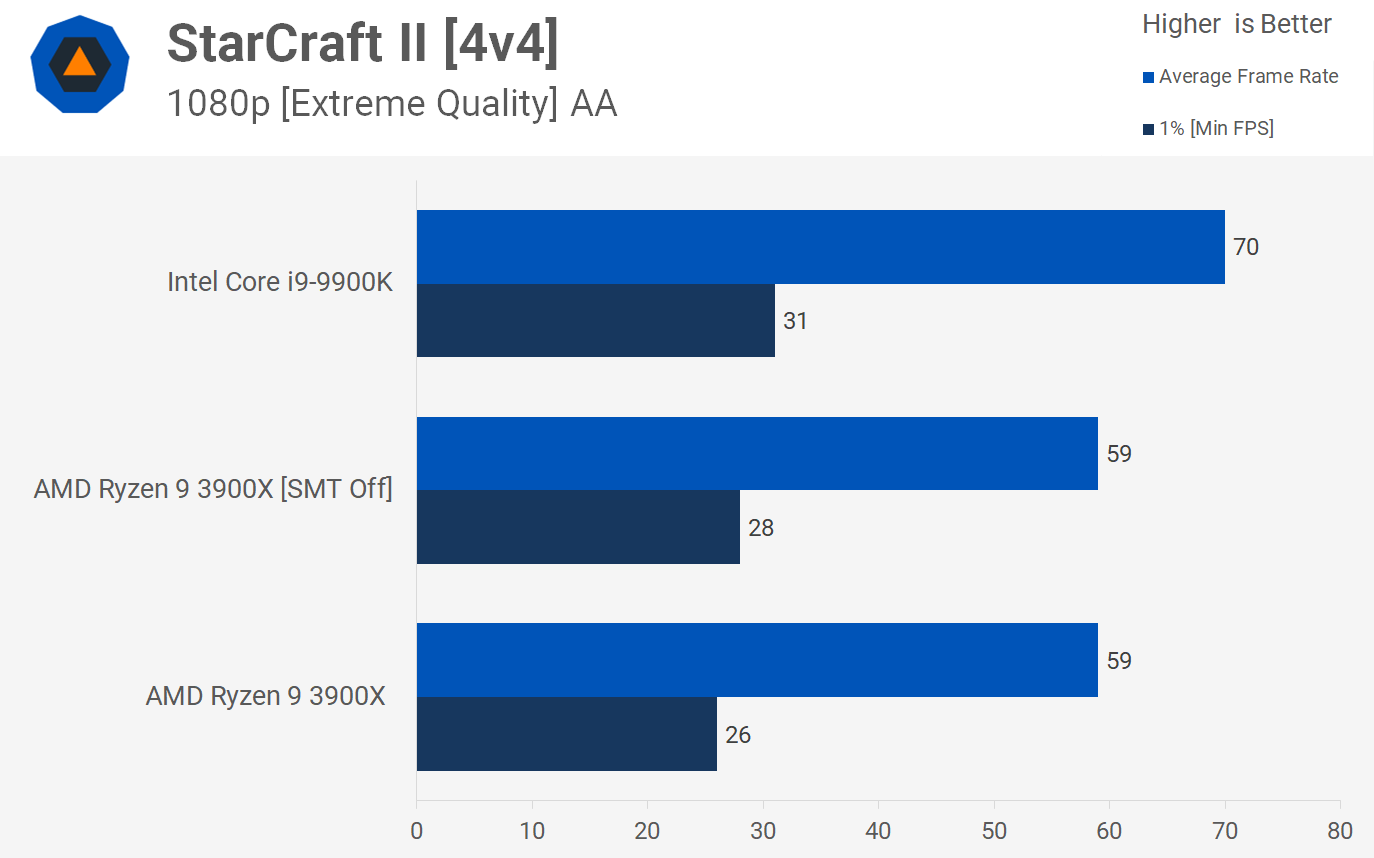
Testing with For Honor shows a 3-4% improvement in performance with SMT disabled and that was actually enough to push the 3900X ahead of the 9900K in this title. Of course, we didn't test the 9900K with Hyper-Threading disabled and there's a very good chance that will boost the Intel processors performance in this title as well.
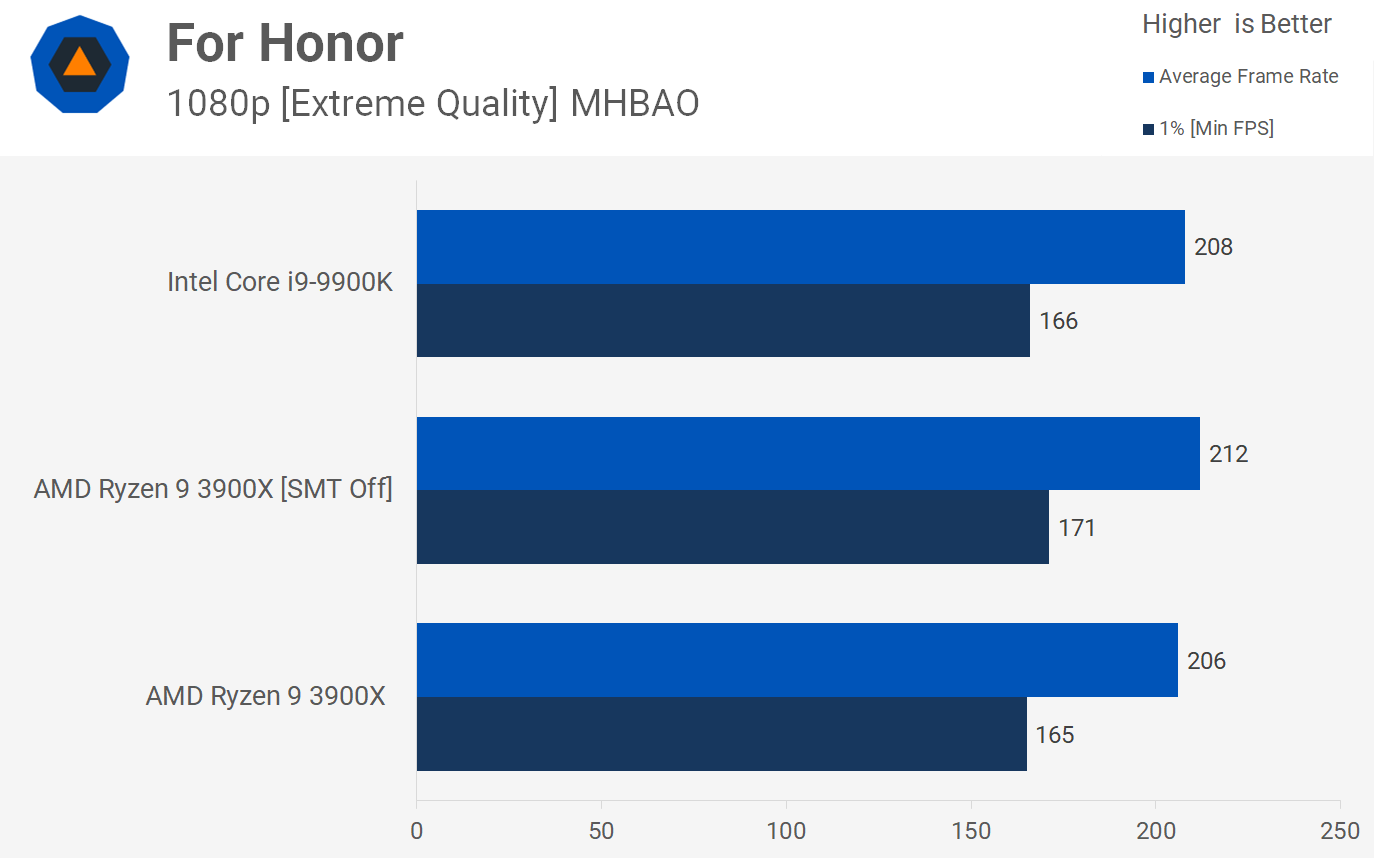
Project Cars 2 sees a small 2-4% improvement in performance with SMT disabled, and while that's nice to see, the 9900K is in no danger of losing the performance crown in this title.
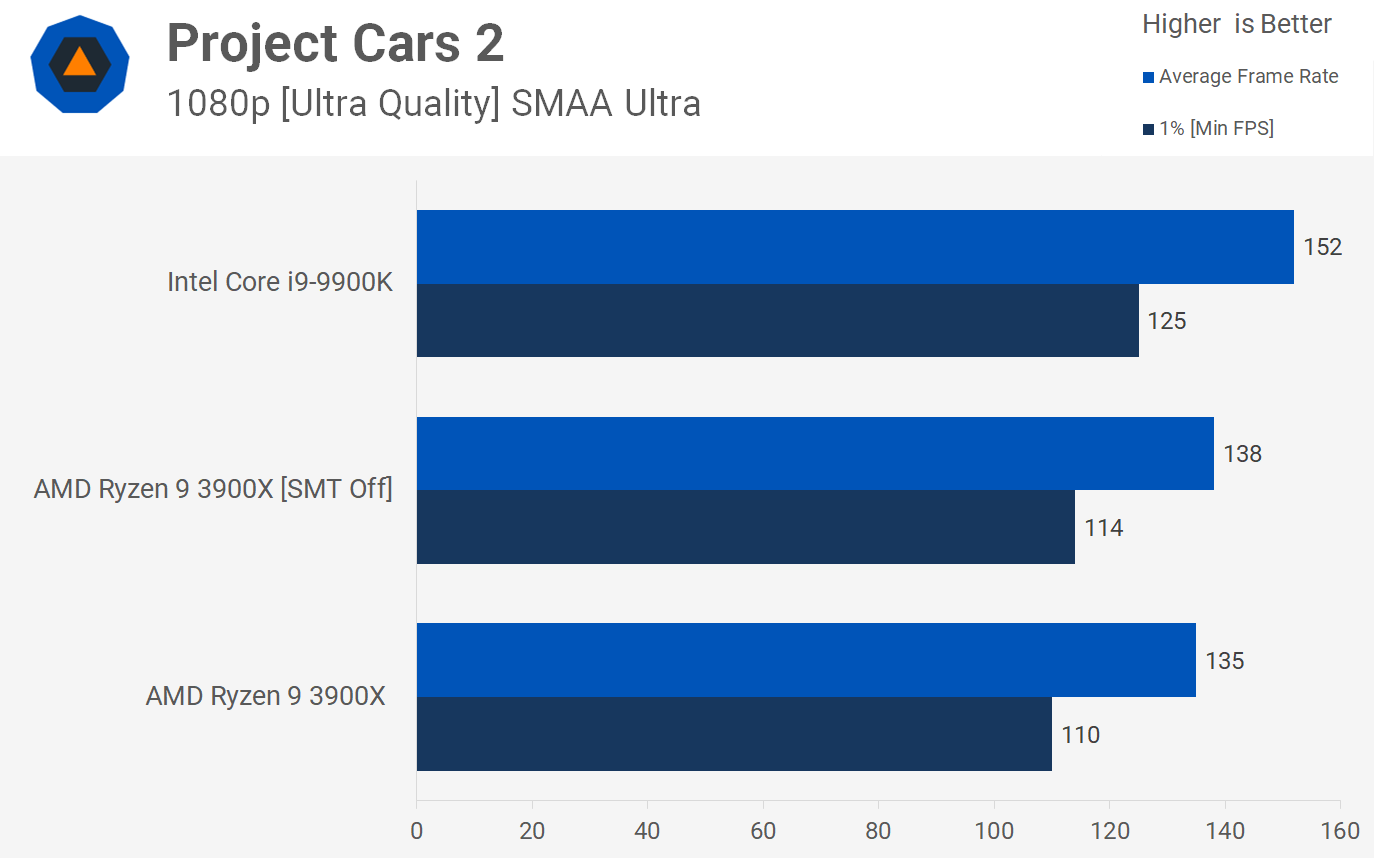
Performance when testing with Total War Three Kingdoms is virtually identical, we see a 1-2 fps advantage in favor of the SMT disabled configuration, but that's pretty well within the margin or error.
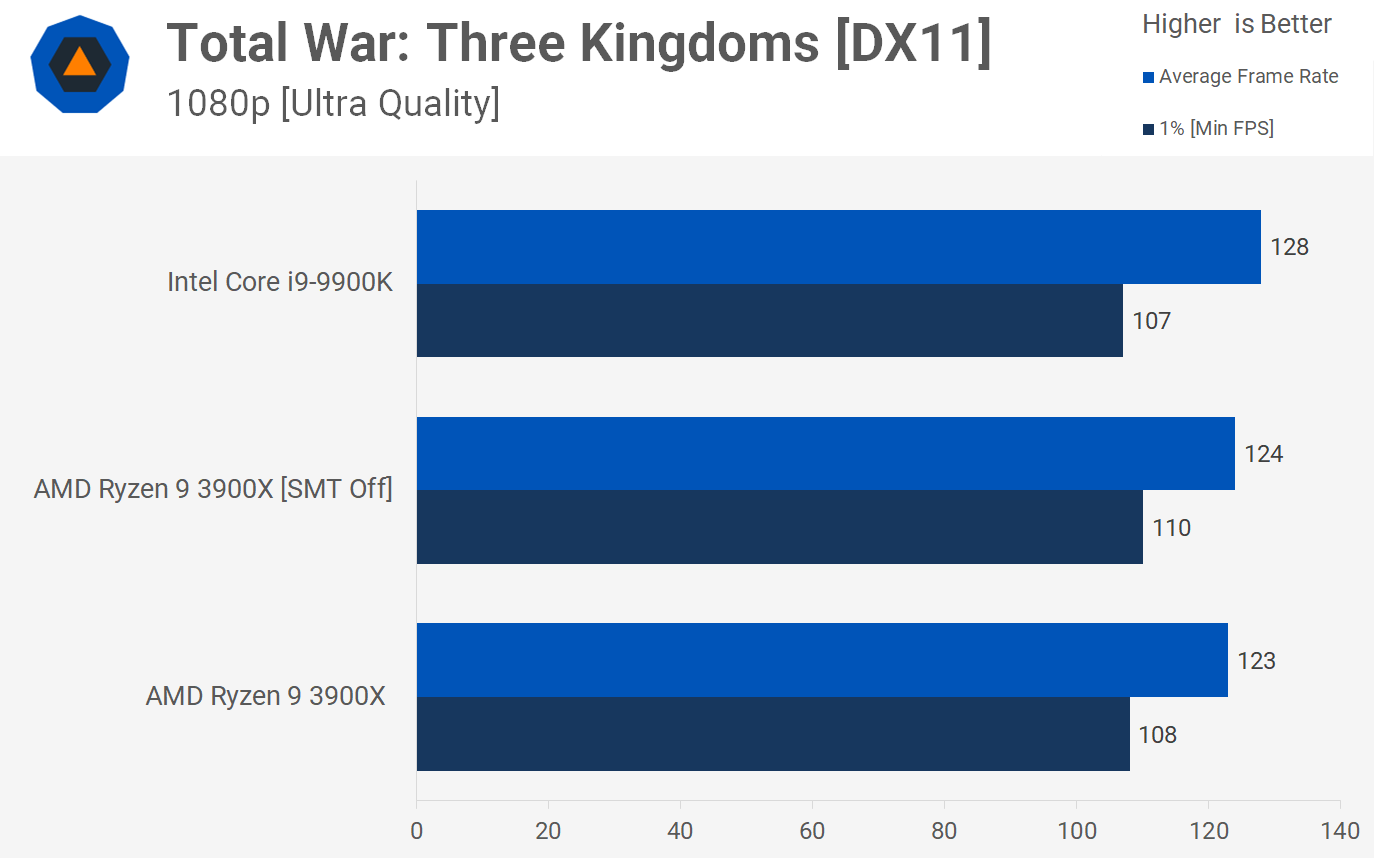
PlayerUnknown's Battlegrounds sees no more than a 1% change in performance with SMT disabled so nothing to see here.
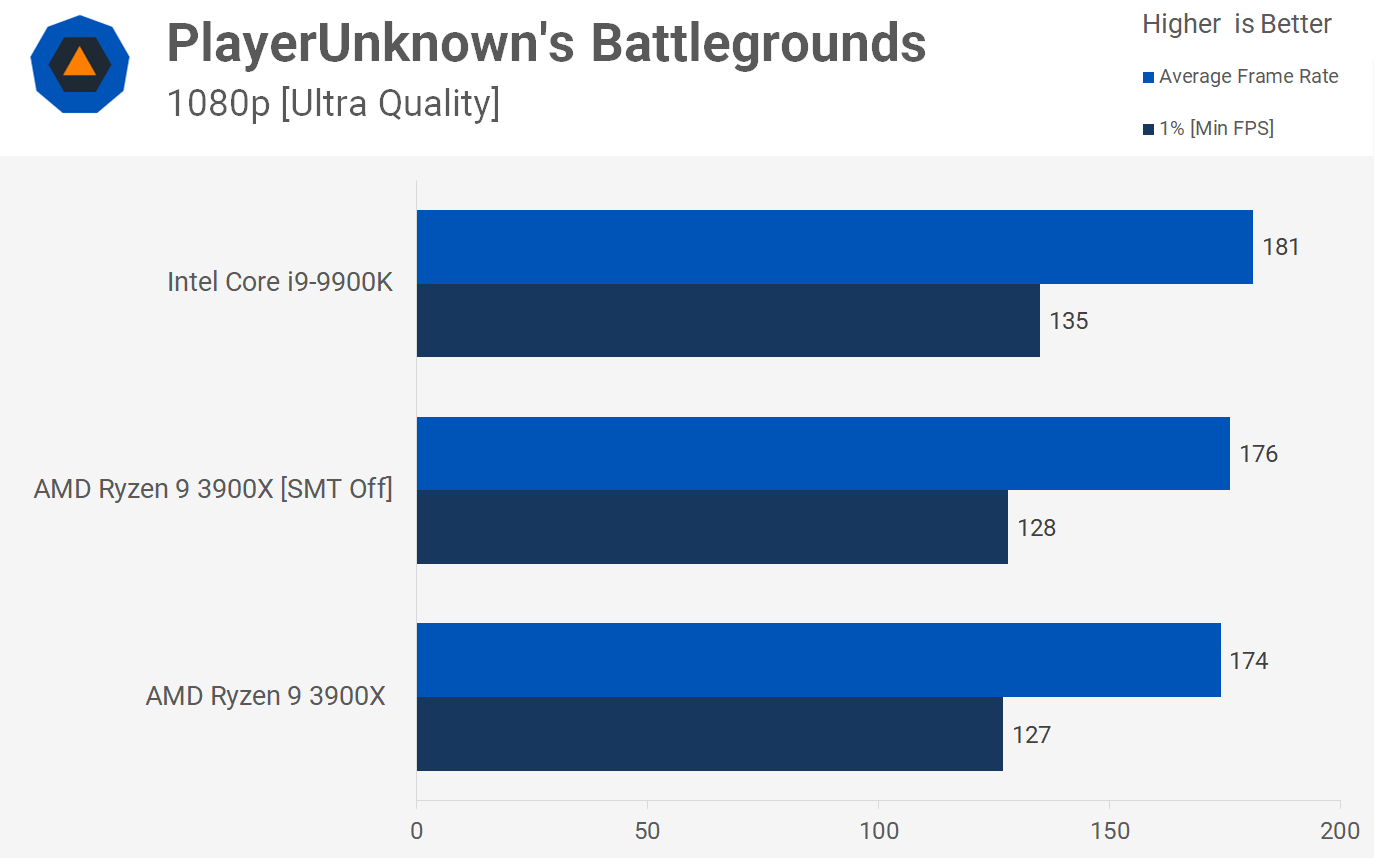
We see a very small performance regression when testing with The Witcher 3 though again, just a 1-2 fps difference is within the margin or error. So it's fair to say performance goes unchanged in this title.
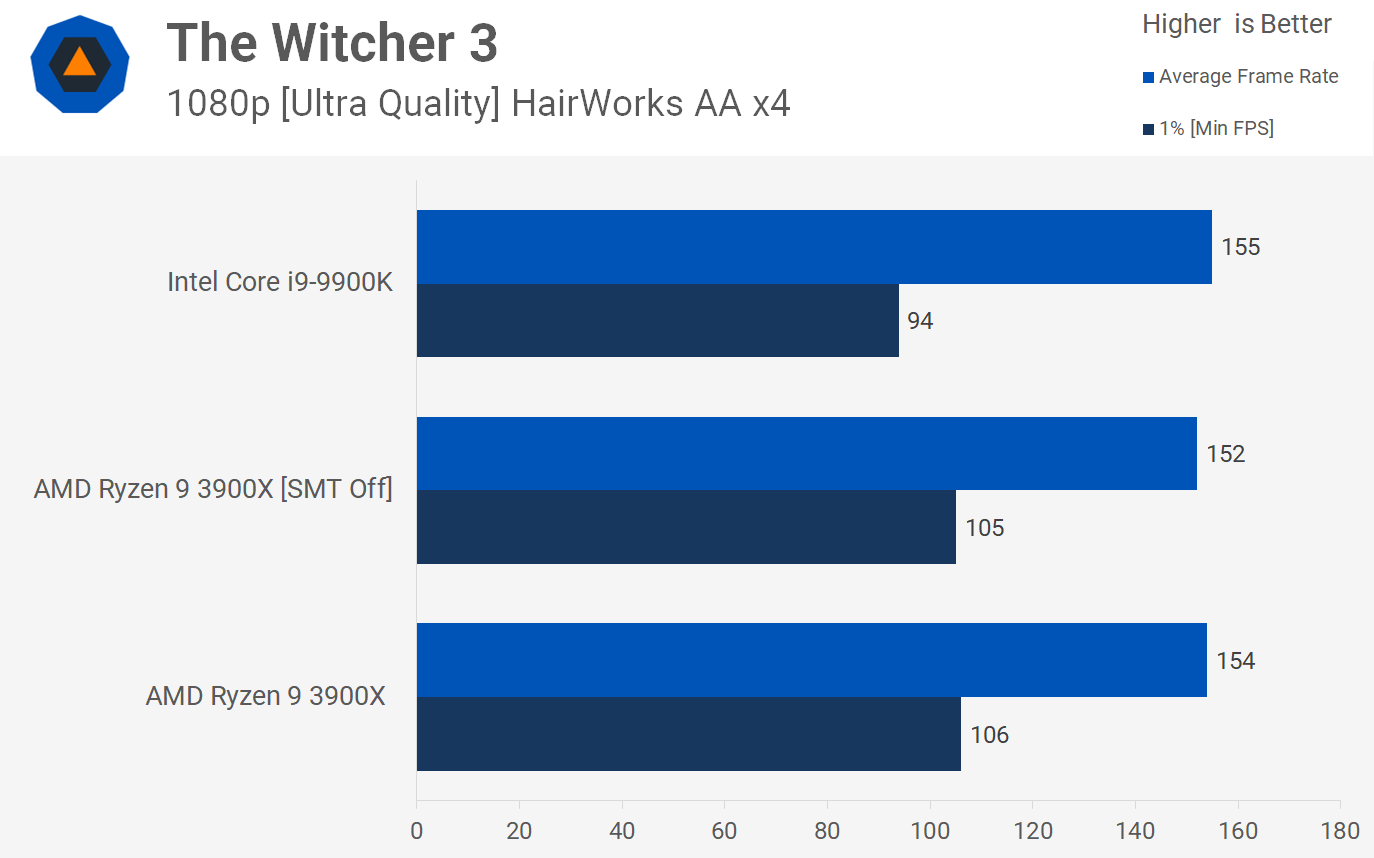
Forza Horizon 4 is a mostly GPU bound game but even so we see a very small performance regression with SMT disabled. Reducing performance by 3% isn't a big deal, though it certainly doesn't help the 3900X close in on the 9900K.
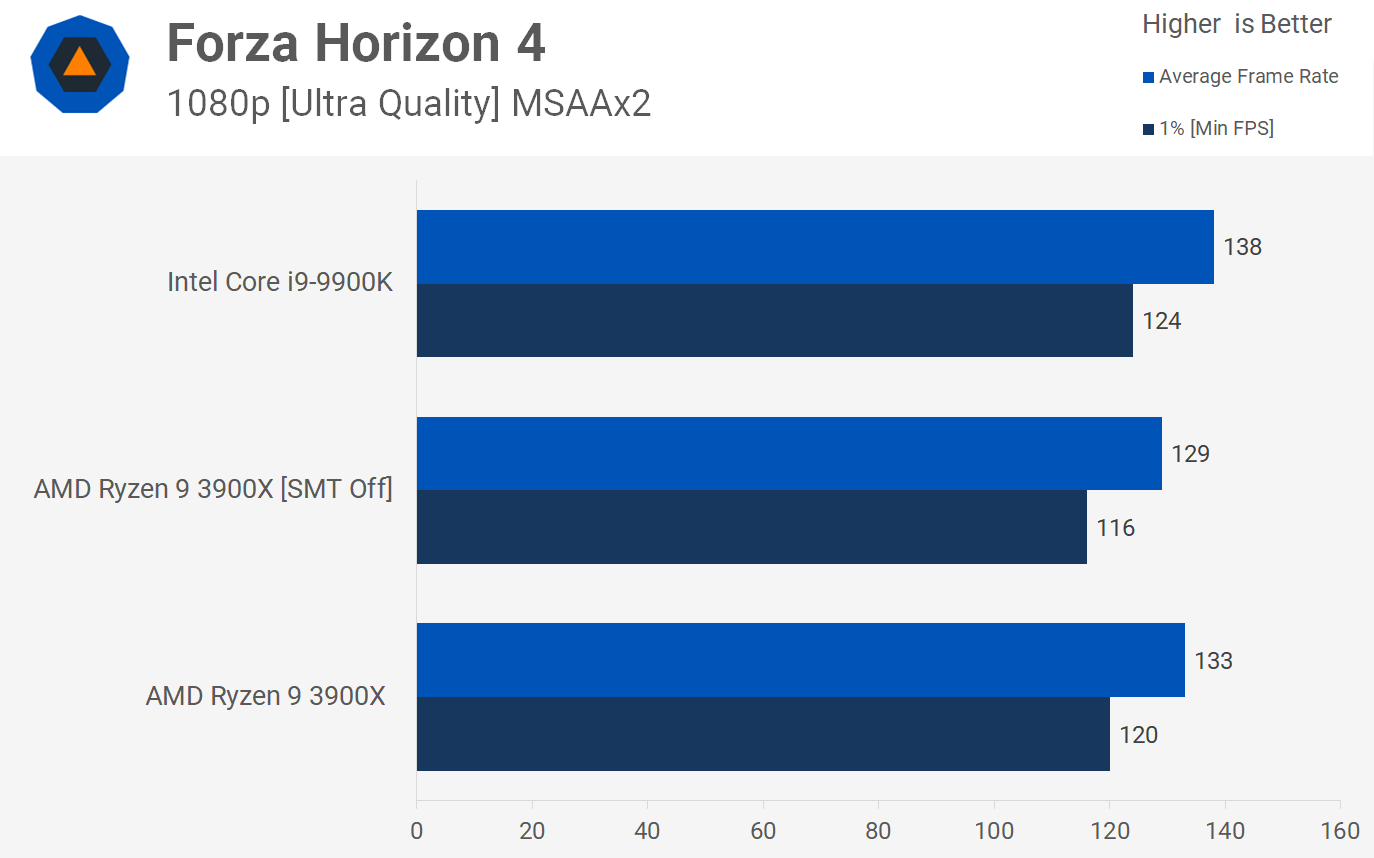
F1 2019 sees a small performance improvement with SMT disabled.

Performance in Far Cry New Dawn went virtually untouched, at least we see the same 112 fps on average. However as we found often the 1% low performance did take a hit with SMT disabled, we're only talking about a ~3% performance drop, but that's not what we want to see.
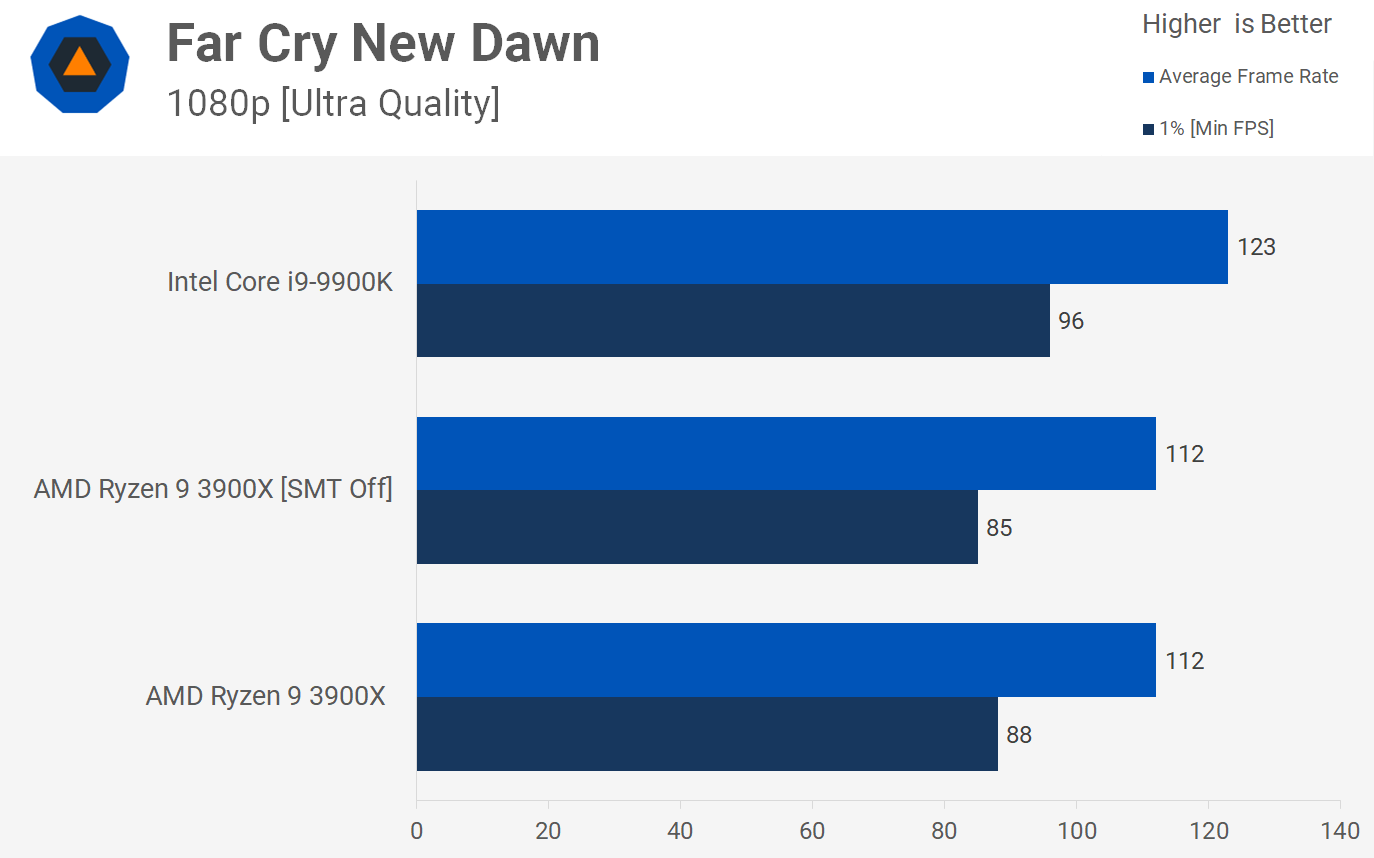
Testing with Strange Brigade shows less than a 1% change to the average frame rate, though we do see a 5% reduction for the 1% low figure. So you'll want to leave SMT enabled for this title.

Interestingly the average frame rate was virtually the same with SMT disabled in Battlefield V, we see quite a substantial reduction in performance for the 1% low result as frame rates dropped by 14%. So this looks to be another title were you really don't want to disable SMT.
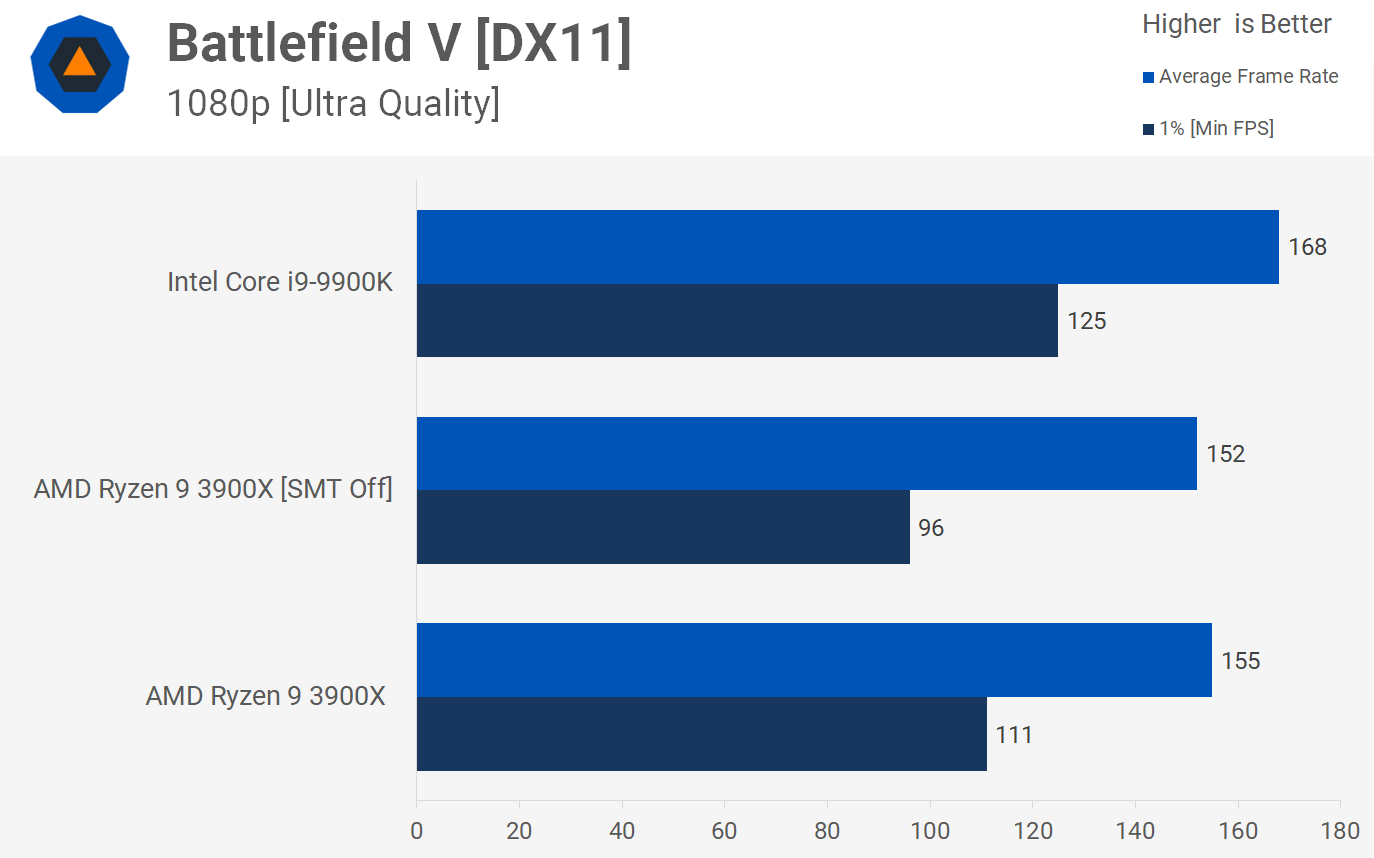
Moving on to Assassin's Creed Odyssey and we tested this game more than a few times just to make sure there was a regression. We saw a 7% drop for the average frame rate and a 9% drop for the 1% low.

Disabling SMT does help with performance in World of Tanks, here the 3900X enjoyed a 3% boost to the average frame rate and now the 9900K is just 5% faster, though it's possible disabling Hyper-Threading will also improve performance for the 9900K.
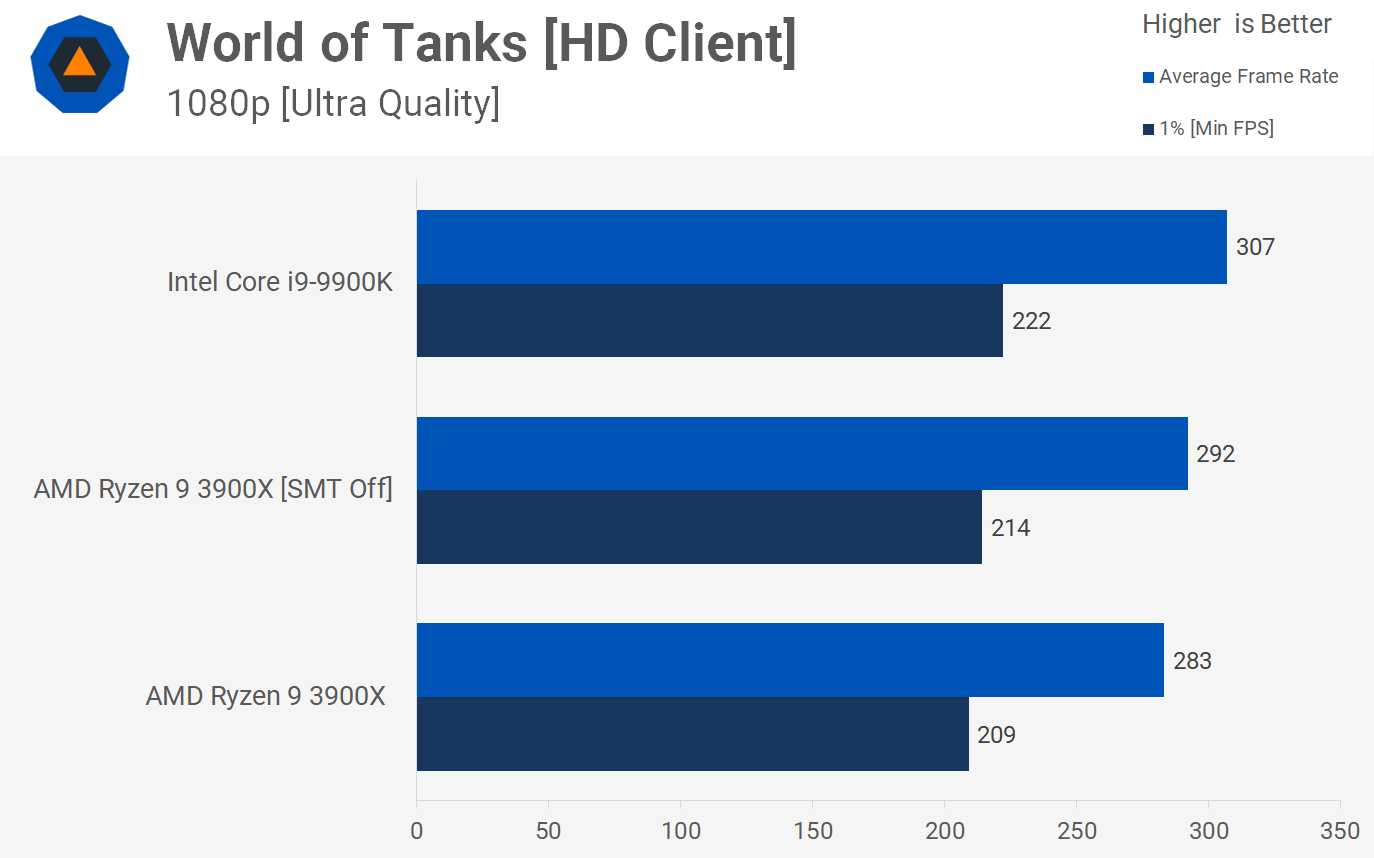
Fortnite is the kind of game we'd expect or guess disabling SMT could help with and that looks to be the case, sort of. Frankly, results are well within the margin or error...

Hitman 2 is always an interesting title that stands out for one reason or another. Here we see a rather large 10% improvement for the average frame rate and now the 3900X is just behind the 9900K, though the 1% low performance is improved by a mere 2%.
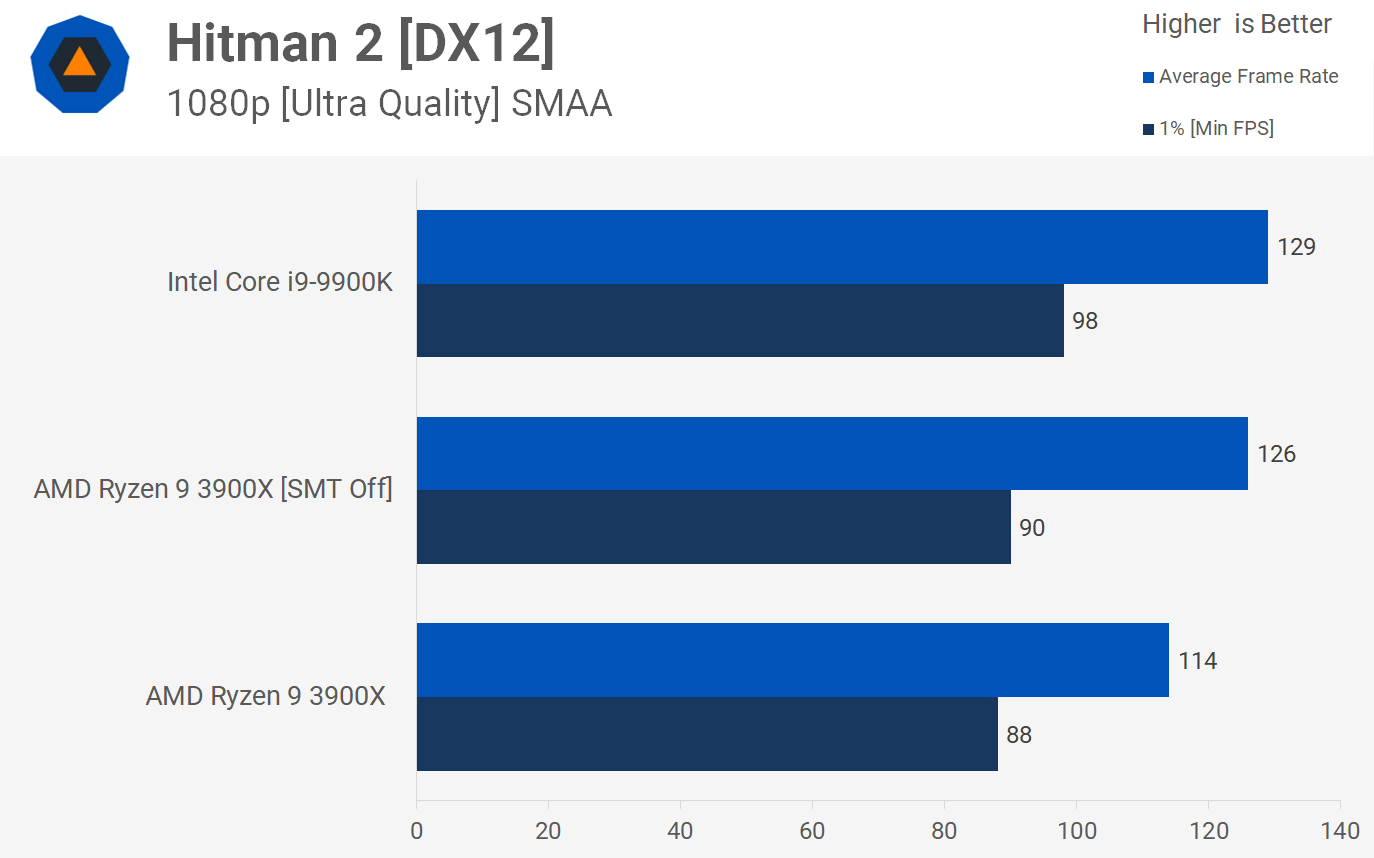
Performance in Resident Evil 2 goes virtually unchanged.
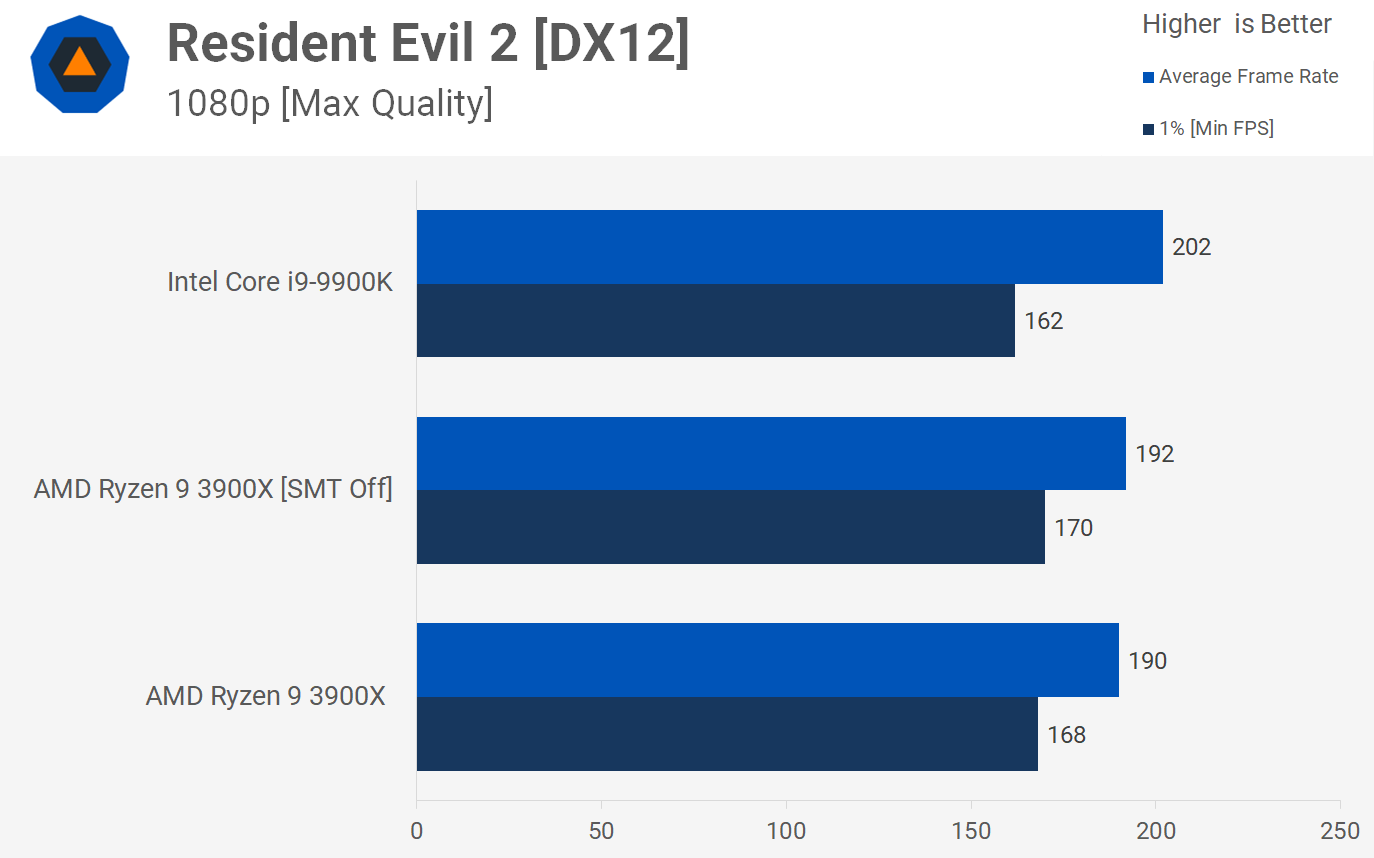
Performance in The Division 2 was pretty much identical with out without SMT support, at least when looking at the average frame rate. We see a 6% reduction with SMT disabled for the 1% low frame rate. While testing this game without SMT we also noticed that the 1% low result tended to fluctuate quite a bit and that is something we didn't see with 24 threads active.
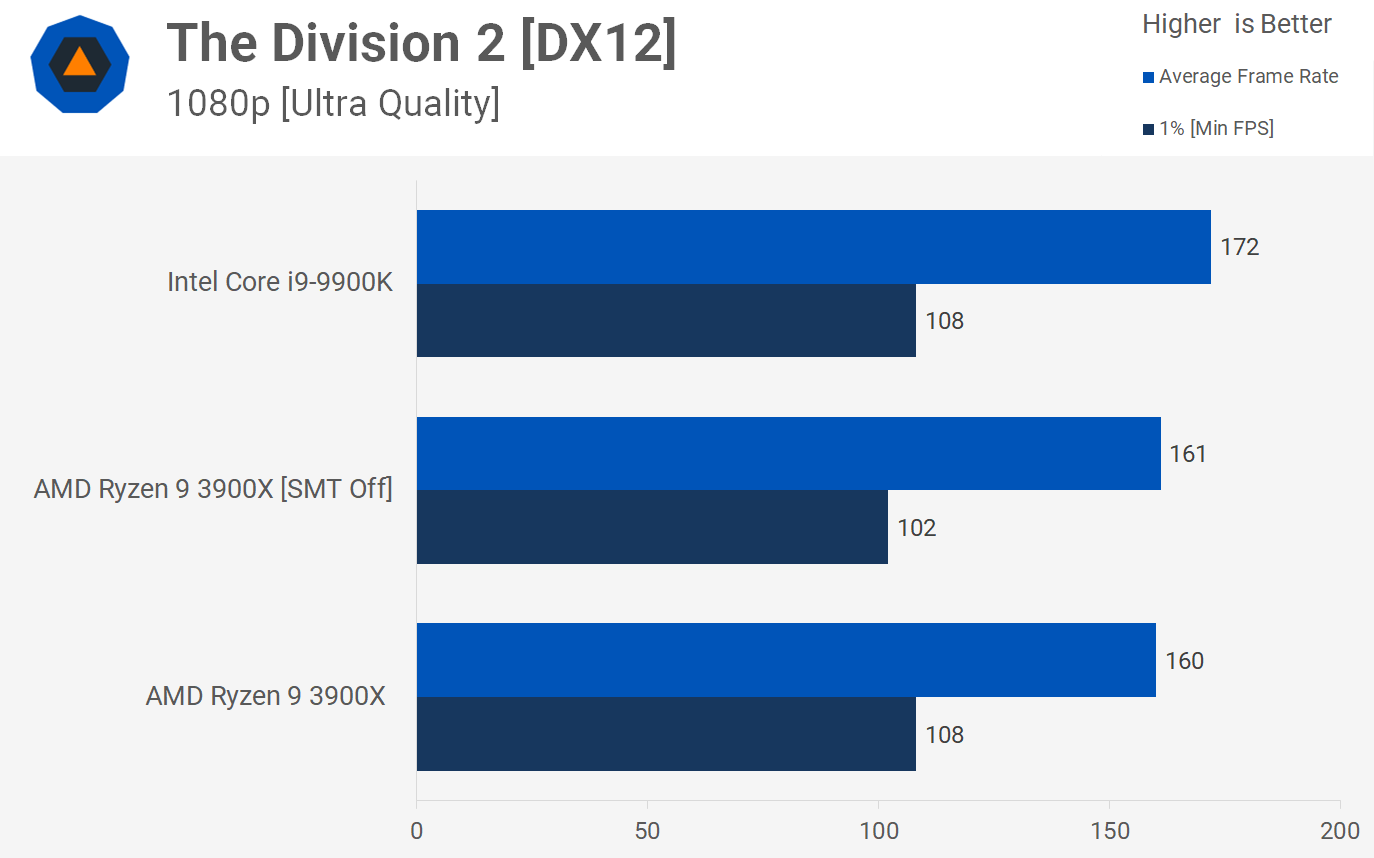
Last up is the Shadow of the Tomb Raider and here we see a nice 7% improvement for the average frame rate, but as we've seen a number of times now, the 1% low performance takes a small hit.

Putting 36 Game Results Together
Disabling SMT certainly looks to be a mixed bag, and we tried to go title by title but we have results for even more games that we tested, starting with the average frame rate results.
On average the Ryzen 9 3900X was just 1% slower overall with SMT enabled, its standard out of the box configuration when you get all the 24 threads with simultaneous multithreading enabled. Here we see that the performance margin is within 5% for the vast majority of the titles tested, and we would argue that we saw a negligible performance difference in 31 of the 36 games tested.
Leaving SMT enabled only improved performance in Assassin's Creed Odyssey while disabling it saw some gains in Shadow of the Tomb Raider, Just Cause 4, Prey and Hitman 2.
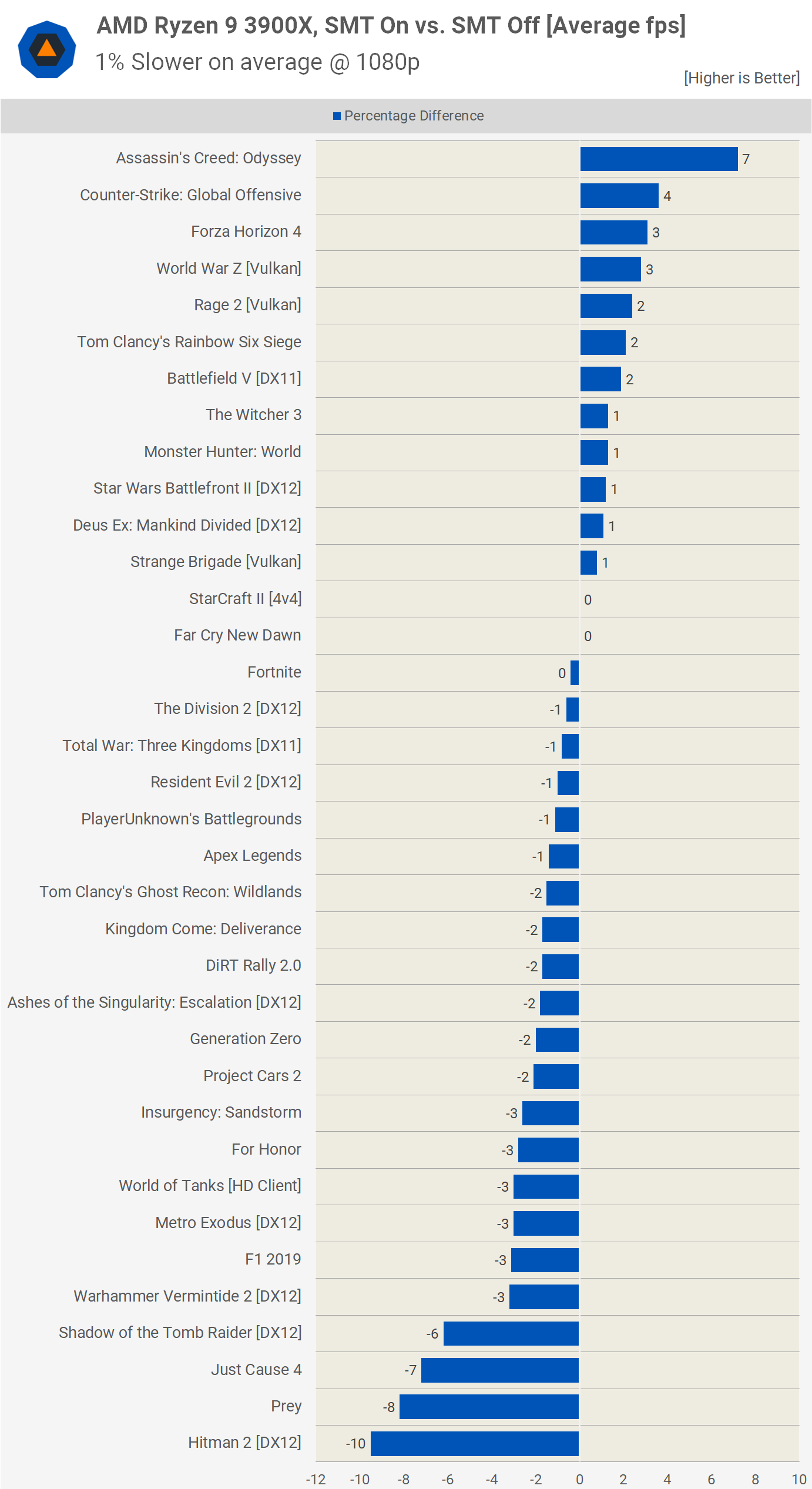
However as we observed when looking at games individually, the average frame rate doesn't tell the whole story.
Let's also see how 1% low figures stack up...
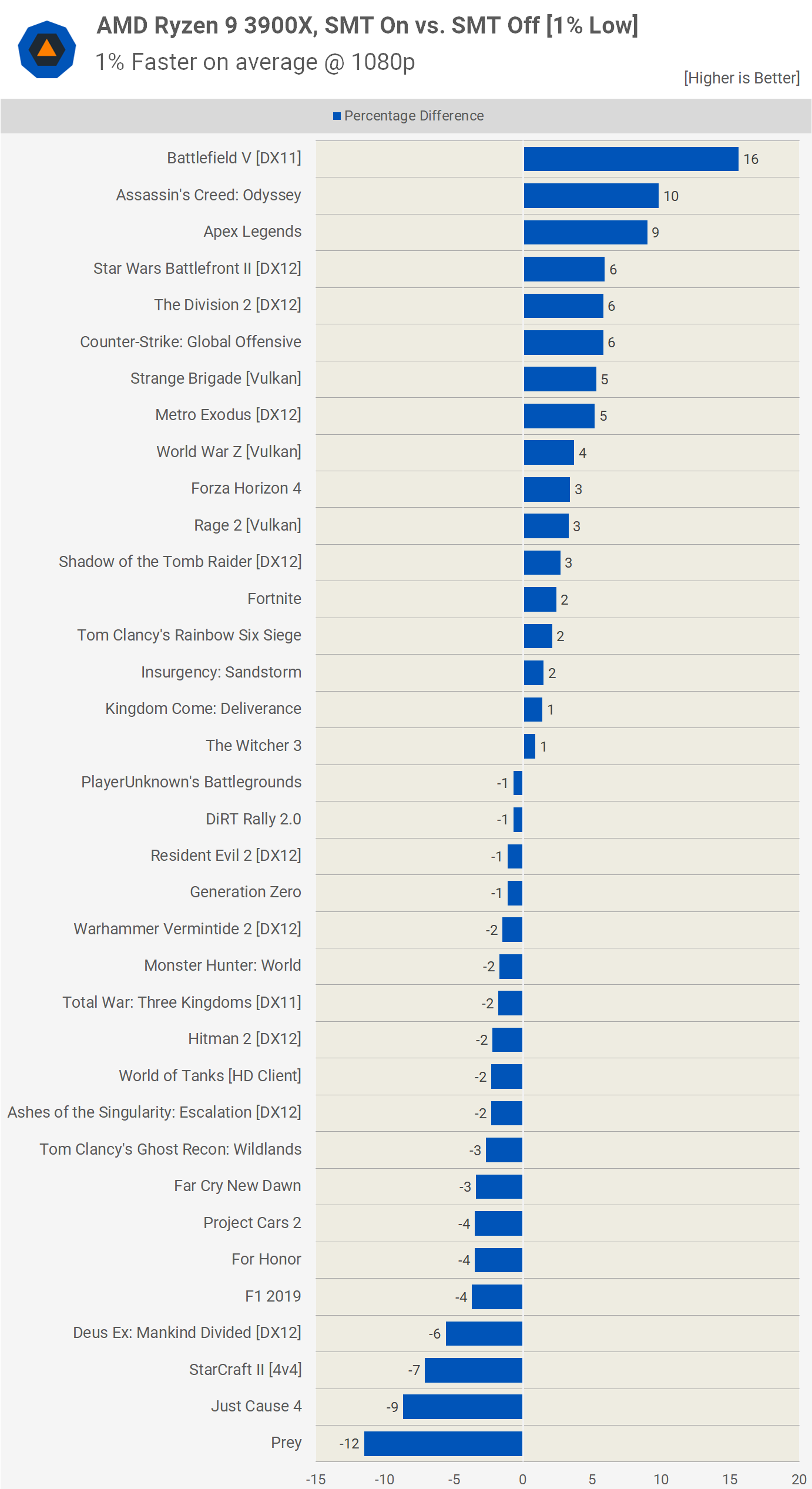
Comparing 1% low performance sees the results swing back in SMT's favor.
Leaving SMT enabled provided a 1% performance uplift on average across the 36 games tested. This means we see a 5% of better performance improvement in 8 games, with a 5% or larger performance drop in just 4 games.
Closing Remarks
Just as we found two years ago when testing the Ryzen 7 1800X, disabling SMT can be of some benefit but your mileage will vary and depend strictly on the game (workload) and is just as likely to cause a regression in performance.
What disabling SMT doesn't do is allow the Ryzen 9 3900X to beat the Core i9-9900K in games or even catch up to it. But then again we don't really need something to justify the purchase, the 3900X and all other 3rd-gen Ryzen chips do what they do well and if you're after a solid all-rounder the Ryzen 9 processor is it.
As we've seen already, the 3900X is plenty enough for high-end gaming and where it lacks a few frames it makes up for with significantly improved productivity performance and the ability to tackle more tasks simultaneously. It also runs much cooler, consumes a little less power, and works fine with the provided stock cooler.
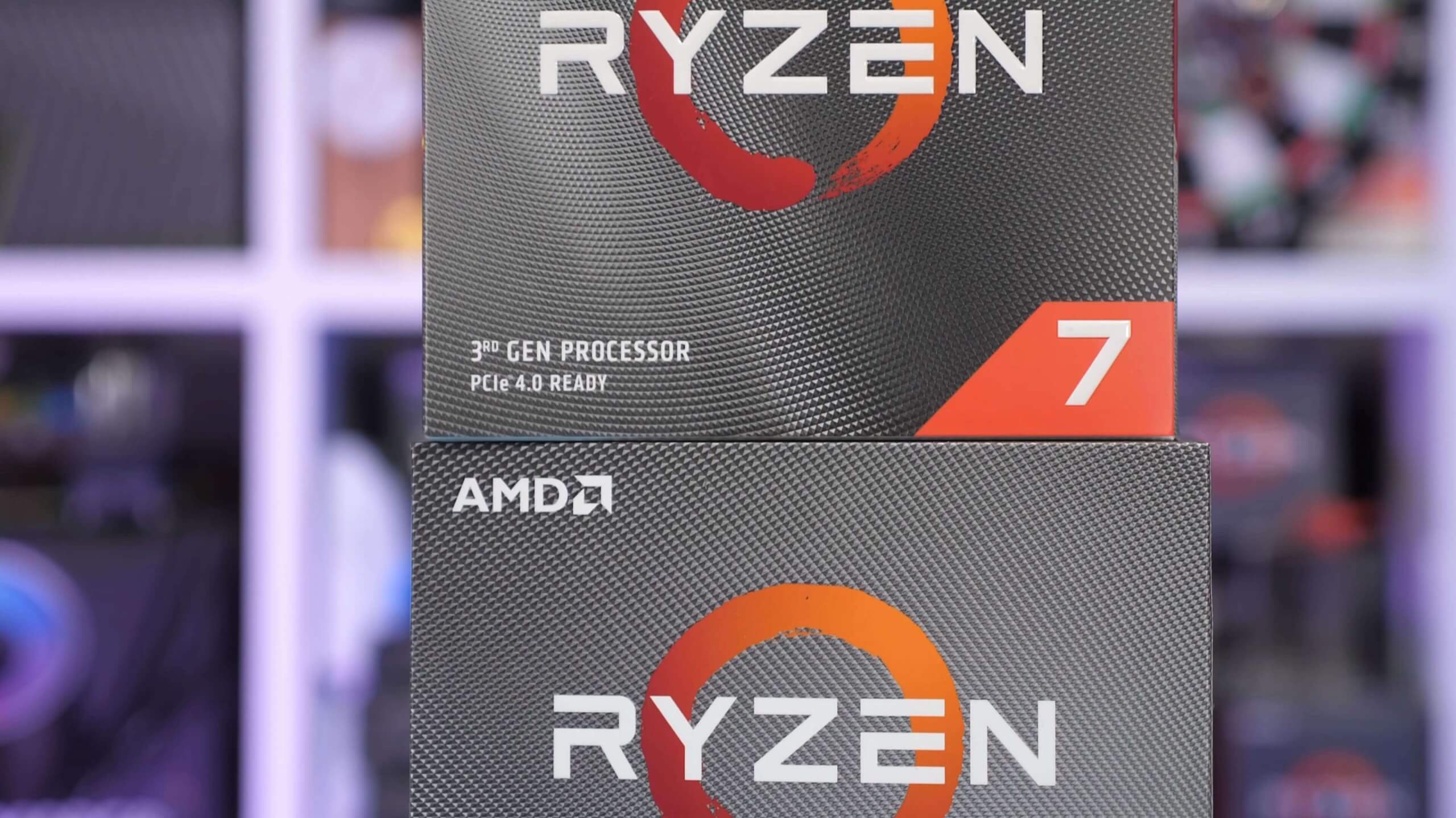
We don't recommend you disable SMT, unless you know that doing so will improve the performance in the specific game you'll be playing. We're not sure why turning SMT off hurts 1% low performance in so many games. At first we thought maybe it was because you go from a situation where the active threads required by the game can be utilized in a single core complex die with SMT enabled, to a situation where those threads are spread across both CCD's with SMT disabled. However, that doesn't seem to make sense given the 3900X generally offers better gaming performance than the 3700X, and we believe that's because it has two CCD's which increases the L3 cache capacity as well as the write lanes to the IO Die. We've reached out to AMD for their take on this, so if we hear anything interesting we'll report back with a footnote here.
Shopping Shortcuts:
- AMD Ryzen 9 3900X on Amazon, Google Express
- Intel Core i9-9900K on Amazon, Google Express
- AMD Ryzen 7 3700X on Amazon, Google Express
- AMD Ryzen 5 3600X on Amazon, Google Express
- AMD Ryzen 5 3600 on Amazon, Google Express
- Intel Core i5-9600K on Amazon, Google Express
- Intel Core i5-9400F on Amazon, Google Express
- AMD Ryzen 5 2600X on Amazon, Google Express
- GeForce RTX 2070 Super on Amazon, Google Express
- GeForce RTX 2060 Super on Amazon, Google Express
- GeForce GTX 1660 Ti on Amazon, Google Express
